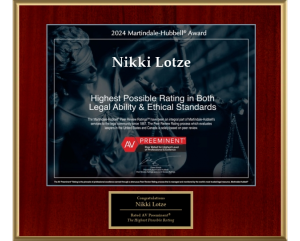If you have been accused of drug possession in Maryland or Washington, D.C., it’s not a charge to be taken lightly. Each year, thousands of Americans are arrested and charged with drug possession. More often than not, these charges are related to small amounts of narcotics, found in someone’s car or on their person.
Due to the frequency of drug arrests, these types of cases account for a significant percentage of criminal court dockets in each state. The strict penalties with drug-related offenses also mean it is not at all uncommon for drug defendants to get stuck in an almost routine cycle of charges and sentencing.
However, with the help of skilled legal counsel, it is possible to contest these charges and obtain an outcome that is more favorable.
Drug Possession Charges
There are both state and federal statutes specific to drug possession. Although many drug possession laws vary on a state-by-state basis, nearly all make it a crime to possess narcotics, like methamphetamine, cocaine, “club drugs”, LSD and heroin. Drug possession laws also criminalize possession of certain “precursor” chemicals that are used to cultivate and manufacture narcotics.
As a result, there are a number of factors that help define what constitutes drug possession, such as:
- The type of drug involved
- The amount of the drug found in the person’s possession
- The geographic jurisdiction the alleged offense occurred
It is possible to be accused of drug possession in violation of both state and federal law. And while the restrictions vary from state to state, the core elements of these offenses are typically the same. Regardless, prosecutors must prove, beyond any reasonable doubt, that the accused individual:
- Knew the drug they were found possessing was classified as a controlled substance
- Knowingly possessed or had control over the drug
Charges Related to Constructive Possession
It is also possible to be charged with something known as “constructive possession”, which essentially means that the individual had access to a narcotic, even though it was not on his or per person when the arrest occurred.
For example, these charges may be filed against an individual or group who possesses keys to a vehicle filled with illegal drugs, assuming other elements of the crime are present.
How Are Drug Possession Laws Categorized?
Generally, drug possession laws fall into one of two primary categories:
- Simple possession, or possession for personal use
- Possession with intent to distribute
Possession with the intent to distribute is the more severe of the two categories, carrying far stiffer penalties should the charge lead to a conviction. Unlike simple possession, the goal with possession with intent to distribute is to penalize and deter drug dealers.
In order to prove the latter of the two, prosecutors need to present evidence that proves the individual intended to distribute. Such evidence might include:
- Large quantities of the drug
- Digital scales
- Baggies
- Significant cash in smaller bills
- Testimony from witnesses
Drug possession statutes also strictly prohibit drug paraphernalia, such as crack pipes, bongs, or syringes. Although federal laws dictate what qualifies as paraphernalia, this law typically hangs on whether or not it can be proven that the paraphernalia was used.
For example, purchasing a new (clean) bong or water pipe does not qualify as possession of paraphernalia. However, if those pieces are discovered to contain illicit residue, that may qualify as drug possession.
Charges Related to Possession of Marijuana
Depending on the state you reside in, marijuana may also fall under this category. However, a number of states have passed legalization measures both medicinal and recreational in recent years, minimizing or eliminating penalties for possessing “legal” amounts of marijuana.
In Washington, D.C., under Initiative 71 which took effect in 2015, adults over the age of 21 are legally permitted to:
- Possess up to two ounces of marijuana
- Transfer up to one ounce of marijuana to another individual who is 21 years old or older, so long as there is no exchange of payment
- Cultivate up to six marijuana plants no more than three mature plants within their residence
- Possess any marijuana-related drug paraphernalia i.e., bongs, rolling papers, or cigar wrappers that is accompanied by one ounce of marijuana or less
- Utilize marijuana on private property
Although marijuana use in Washington, D.C. has been legalized (to a point), there are still criminal violations attached to marijuana use. A person could still be arrested and charged for:
- Selling marijuana, in any amount, to another individual
- Possessing marijuana in excess of two ounces
- Operating a motor vehicle under the influence of marijuana
- Smoking, drinking or eating marijuana in any public space
What to Do If You Have Been Charged with Drug Possession
If you or someone you love has been charged with drug possession, including possession of marijuana in a state that has legalized marijuana, it is important that you seek the guidance of a qualified Washington, D.C. criminal defense attorney. Because drug crimes are weighed heavily in many states, it is critical that you have legal counsel who understands the laws in your jurisdiction and can formulate a strong legal defense.
That’s where the highly skilled defense team at Lotze Mosley, LLP comes in. Our law firm specializes in a wide variety of defense matters and can work with you to build a strong legal defense that leads to a favorable end result.
To discuss your legal defense with a member of our legal team, contact our office today at (202) 393-0535.











